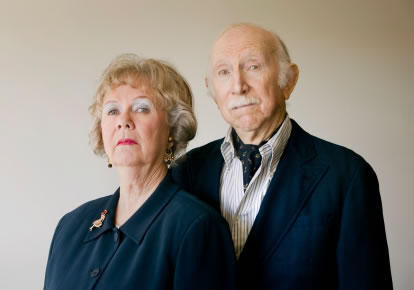Published: April 17, 2012

Image: iStockphoto
What makes some people give blood and bake casseroles for their neighbors, while others mutter about taxes from behind closed blinds?
A new paper published in Psychological Science, a journal of the Association for Psychological Science finds that part of the answer—but not all—may be in their genes.
The hormones oxytocin and vasopressin are thought to affect how people behave toward each other. For example, lab tests have found that people play nicer in economic games after having oxytocin squirted up their nose. “This is an attempt to take this into the real world a little bit,” says Michael Poulin, of the University at Buffalo. He co-wrote the paper with Anneke Buffone of the University at Buffalo and E. Alison Holman of the University of California, Irvine. “We really haven’t seen it applied as much to broader-scale social behaviors—giving to charity, participation in the civic arena, and so on.” [continue reading…]
Published: January 17, 2012

Image:Flickr~Dan Brady
Millions of human interactions were assessed during the study which included actions such as communication, founding and ending friendships, trading goods, sleeping, moving, however also starting hostilities, attacks and punishment. The game does not suggest any rules and everyone can live with their avatar (i.e. with their “game character” in the virtual world) as they choose. “And the result of this is not anarchy”, says Thurner. “The participants organise themselves as a social group with good intents. Almost all the actions are positive.”
“Exactly how people tick”
The interactions were fed into an “alphabet” by the researchers, “similar to how the genetic code of DNA was decoded 15 years ago”, says Thurner. “From this we get a pattern which reflects how people tick”. However, there is quite a high potential for aggression: so, for example, if a negative action is inflicted, the probability that the player will subsequently also act aggressively shoots up more than tenfold, even to about 30 percent. [continue reading…]
Published: November 12, 2010

Image : Creative Commons
Potential investors may wish to examine the fingers of their financial advisor prior to signing over any savings. A new study from Concordia University has found the length between the second and fourth finger is an indicator of high levels of prenatal testosterone, risk-taking and potential financial success in men. The findings, published in the journal of Personality and Individual Differences, suggest that alpha males may take greater risks in relationships, on the squash court and in the financial market. [continue reading…]
Published: August 5, 2009
Recent psychological research has revealed widely held unconscious thought patterns that most people would rather not possess. Dr. Anthony Greenwald, psychology professor at the University of Washington, describes his research developing the method (described in Malcolm Gladwell’s Blink) that reveals this unconscious mental content, demonstrates the method and describes how the unconscious mental mental content that it reveals affects our behaviour. link to watch this 2 part video
Source: University of Washington




